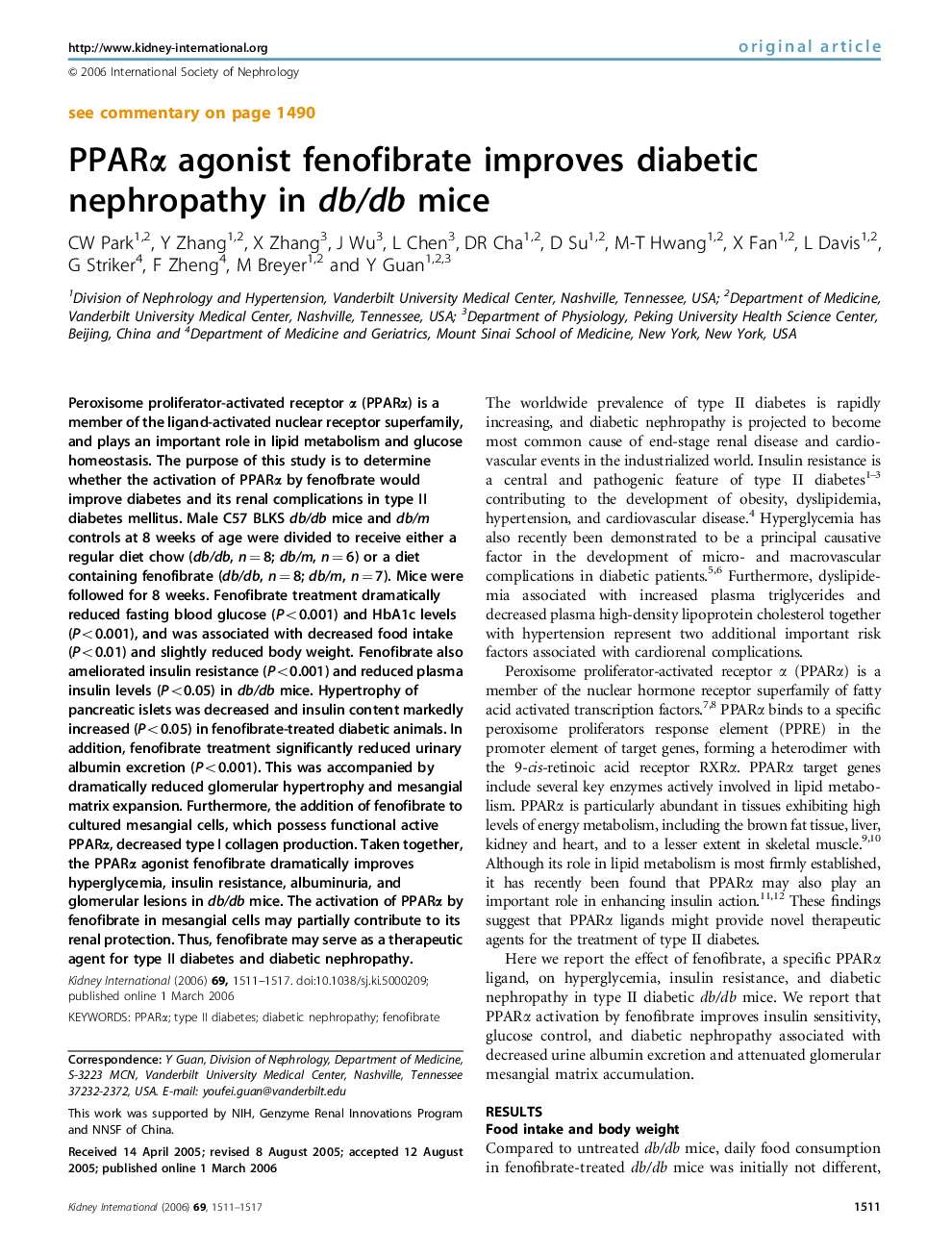| Article ID | Journal | Published Year | Pages | File Type |
|---|---|---|---|---|
| 3886112 | Kidney International | 2006 | 7 Pages |
Peroxisome proliferator-activated receptor α (PPARα) is a member of the ligand-activated nuclear receptor superfamily, and plays an important role in lipid metabolism and glucose homeostasis. The purpose of this study is to determine whether the activation of PPARα by fenofbrate would improve diabetes and its renal complications in type II diabetes mellitus. Male C57 BLKS db/db mice and db/m controls at 8 weeks of age were divided to receive either a regular diet chow (db/db, n=8; db/m, n=6) or a diet containing fenofibrate (db/db, n=8; db/m, n=7). Mice were followed for 8 weeks. Fenofibrate treatment dramatically reduced fasting blood glucose (P<0.001) and HbA1c levels (P<0.001), and was associated with decreased food intake (P<0.01) and slightly reduced body weight. Fenofibrate also ameliorated insulin resistance (P<0.001) and reduced plasma insulin levels (P<0.05) in db/db mice. Hypertrophy of pancreatic islets was decreased and insulin content markedly increased (P<0.05) in fenofibrate-treated diabetic animals. In addition, fenofibrate treatment significantly reduced urinary albumin excretion (P<0.001). This was accompanied by dramatically reduced glomerular hypertrophy and mesangial matrix expansion. Furthermore, the addition of fenofibrate to cultured mesangial cells, which possess functional active PPARα, decreased type I collagen production. Taken together, the PPARα agonist fenofibrate dramatically improves hyperglycemia, insulin resistance, albuminuria, and glomerular lesions in db/db mice. The activation of PPARα by fenofibrate in mesangial cells may partially contribute to its renal protection. Thus, fenofibrate may serve as a therapeutic agent for type II diabetes and diabetic nephropathy.
